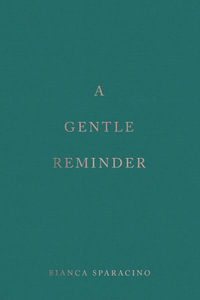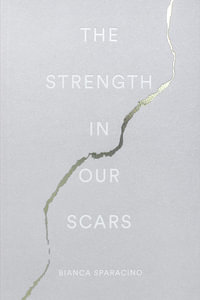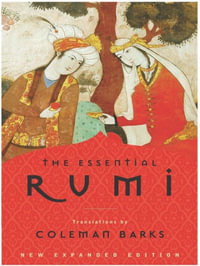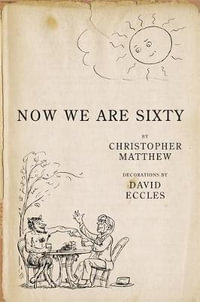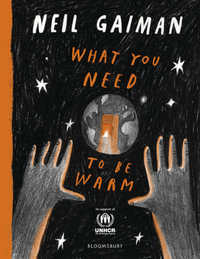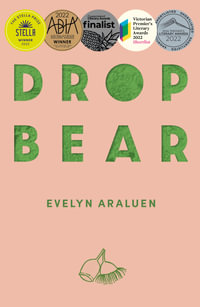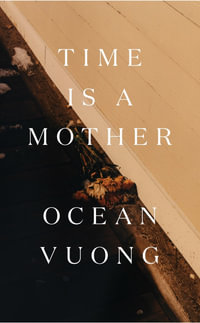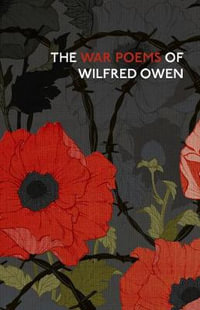
At a Glance
Paperback
102 Pages
102 Pages
Dimensions(cm)
23.0 x 18.1
23.0 x 18.1
Paperback
$47.75
Aims to ship in 10 to 15 business days
"Hot Pink Peach" is a poetry book consisting of two long poems, written in the 1990s: "The Cerebral Sacristry" and "Zapadny." The book's opening poem, "The Cerebral Sacristry," offers encouragement and inspiration to those fighting through their outlandish territories, using rich language and abstract concepts. The language of the poems is rich and dense, full of metaphors and abstract concepts that invite the reader to engage with the text on multiple levels. The imagery of electrical abstractions within one's mind and the interplay of mysterious organisms creates a sense of otherworldliness and invites the reader to contemplate the complexities of the human psyche, mortality, and the meaning of existence and divinity which adds to its philosophical depth. The use of enjambment and irregular line breaks contributes to the overall sense of disorientation and dreamlike quality of the text. The second poem, "Zapadny," is a dense and complex exploration of themes such as love, pain, anger, and death. It highlights isolation and the struggle to find meaning in life. The vivid images at the end of the poem create a sense of suffering and despair. Both poems are unique in their language, themes and poetic devices. They share a complex and dense quality exploring perseverance in the darkness, the human experience and self-discovery using powerful and evocative language, vivid and abstract imagery which convey a sense of emotional distress. Overall, the book is thought-provoking and enigmatic, resonating with readers who appreciate abstract and challenging poetry.
Industry Reviews
'Hot Pink Peach' is a book compilation of 2 long poems: 'The Cerebral Sacristry' and 'Zapadny':The opening of the first poem sets the tone for the work of poetic fiction that is to come and proceeds to address those who struggle in the darkness and persevere in their outlandish territories, offering words of encouragement and inspiration to keep fighting. The language of the poem is rich and dense, full of metaphors and abstract concepts that invite the reader to engage with the text on multiple levels. The imagery of electrical abstractions within one's mind and the interplay of mysterious organisms creates a sense of otherworldliness and invites the reader to contemplate the complexities of the human psyche. The poem also touches on themes of divinity, mortality, and the meaning of existence, adding to its philosophical depth. The use of enjambment and irregular line breaks contributes to the overall sense of disorientation and dreamlike quality of the text. Overall, the opening of the poem sets the stage for an immersive and thought-provoking work of poetic fiction. It invites the reader to delve deeper into the themes and imagery of the text, and sets a tone of encouragement and perseverance that resonates throughout the poem. Continuing the exploration of themes of uncertainty, confusion, and anxiety that characterize the rest of the poem, the language is highly figurative and often abstract.For example, the lines "Spin out your dumb revealing soul / to fabricate a graceless role / between your person and your all / despite your breath's exclusive call." Here, the poet seems to be urging the reader to confront their own limitations and contradictions, to "fabricate a graceless role" that acknowledges the distance between one's personal identity and the larger forces that shape it. The poem then moves into a series of highly abstract and surreal images, including an octopus dropping music, bars of light illuminating interior pains, and a hamper stuffed with cramp. These images suggest a world of chaos and confusion, where familiar structures and meanings have been destabilized. There is a return to a more coherent narrative voice, with the poet reflecting on their own descent into decay and death. The section ends with a plea to the "pale moonlit eyes / of ebon depth," suggesting a desire for transcendence or escape from the material world.The poem is filled with vivid and abstract imagery, which can be interpreted in different ways by readers. The poet seems to be exploring different states of mind, moving from cinematic screens to a dirty-slick Thames, from hot sugar cooling on a cold, thin skull to turquois turned and gold walls, and from a pastel bridge to a litoral pool of night. The language is rich, and the syntax is complex, making the poem challenging to decipher. The poem appears to be an exploration of the human experience, with the poet delving into the depths of their consciousness to uncover meaning and purpose. The theme of self-discovery is central to the piece, with the poet using rich imagery and poetic language to explore the different states of mind that one can experience in the quest for self-knowledge. The poem also touches on themes of despair and hope, with the poet expressing a desire to be transformed and to attain perfection, even as they struggle with the challenges and uncertainties of life. The use of vivid imagery and abstract language creates a dream-like quality to the piece, which adds to its overall enigmatic and thought-provoking nature. Overall, this section of the poem is a rich and complex exploration of the human experience, and it will likely resonate with readers who appreciate abstract and challenging poetry. Zapadny: The second poem 'Zapadny', is a complex and dense piece of literature that requires careful attention to fully understand. The poem appears to be a mixture of different themes, including love, pain, anger, and death. The opening lines set the tone for the rest of the poem, as they describe the poet's encounter with a figure who emerges from the fire in quiet agony. The poet refers to this figure as a "Caitiff!" and a "Cruel Stone!", which suggests that there is some animosity between them. The next few lines describe the figure's jet eye and live black heart, which are compared to Georgian daggers that cut the poet from out of their thighs. This imagery is vivid and evocative, and it creates a sense of pain and suffering. The following lines suggest that the poet is trapped in forty-two bell jars, and that someone else knows this. This could be interpreted as a metaphor for feeling trapped or isolated in a particular situation, and the reference to love not being enough suggests that the poet is struggling to find meaning or purpose in their life.The poem then moves on to describe a moment when Venus came to the poet on a tiger skin. This scene is filled with uncertainty and doubt, as Venus whispers to the poet that no one hears them, and that they are alone. This moment is significant because it highlights the theme of isolation that runs throughout the poem. The poet then becomes angry with the persons of their crib, who they believe will not understand their finite verse. The poet acknowledges that they are of the opposite yet find themselves within the reader's head, which is a fascinating and introspective moment.The poem paints a series of vivid and violent images which suggest that the poet is in a state of extreme emotional distress, and they are struggling to cope with their pain. The poem is a powerful and evocative piece of literature that explores themes of love, pain, anger, spirituality and death. The use of vivid imagery and complex metaphors creates a sense of urgency and intensity that captures the reader's attention and holds it until the very end.The poet uses fragmented and disjointed syntax to convey a sense of confusion and uncertainty, which adds to the overall surreal and dreamlike quality of the poem. For example, the poem speaks about the poet's shame and his/her desire to consult a doctor. However, the poet doubts that the doctor can extract the "holy flame" or pin the "lice" that afflict him, and thus the poet addresses the poet's Tigress, whom he asks to tranquillize him with the poisons on her claw, while a subsequent dialogue between the poet and Mary, challenges the poet's assumptions about himself and accuses him of idolizing a thief. A series of disjointed and obscure images and metaphors seem to allude to the poet's spiritual and physical suffering and to the theme of identity, for the poet questions who he really is behind his mask and whether he is responsible for other people's pain. The poet's relationship with his Tigress and his desire to possess her is portrayed before a shift towards a more spiritual tone, as the poet talks about holy food and salvation. But then he addresses the "sentimental Anti Christ" with a message of nihilism and despair. The poet tells the Anti Christ not to pin his hopes on paradise or any other better life because "this is it." The poem ends with a sense of bleakness and hopelessness, suggesting that the poet is trapped in a cycle of pain and suffering that he/she cannot escape. The poet reflects on themes such as death, beauty, madness, and identity. The language is poetic and abstract, with references to the poet's own mortality and the transience of life. The final lines suggest a choice between decay and blame, with the poet opting for the latter. Overall, the poem presents a surreal and introspective view of the world, with a focus on the darker aspects of human experience.
ISBN: 9781916414013
ISBN-10: 191641401X
Published: 1st January 2020
Format: Paperback
Language: English
Number of Pages: 102
Audience: General Adult
Publisher: SCHNOFF
Country of Publication: GB
Dimensions (cm): 23.0 x 18.1
Shipping
| Standard Shipping | Express Shipping | |
|---|---|---|
| Metro postcodes: | $9.99 | $14.95 |
| Regional postcodes: | $9.99 | $14.95 |
| Rural postcodes: | $9.99 | $14.95 |
How to return your order
At Booktopia, we offer hassle-free returns in accordance with our returns policy. If you wish to return an item, please get in touch with Booktopia Customer Care.
Additional postage charges may be applicable.
Defective items
If there is a problem with any of the items received for your order then the Booktopia Customer Care team is ready to assist you.
For more info please visit our Help Centre.
You Can Find This Book In

Januaries
Iconic short stories from Olivie Blake, Sunday Times bestseller and author of The Atlas Six
Paperback
RRP $34.99
$32.95
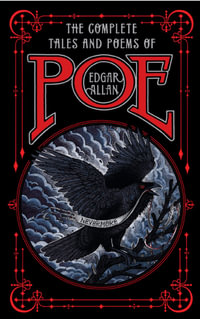
The Complete Tales and Poems of Edgar Allan Poe - Omnibus Edition
Barnes & Noble Leatherbound Classic Collection
Leather Bound Book
RRP $59.99
$41.35
31%
OFF
OFF

